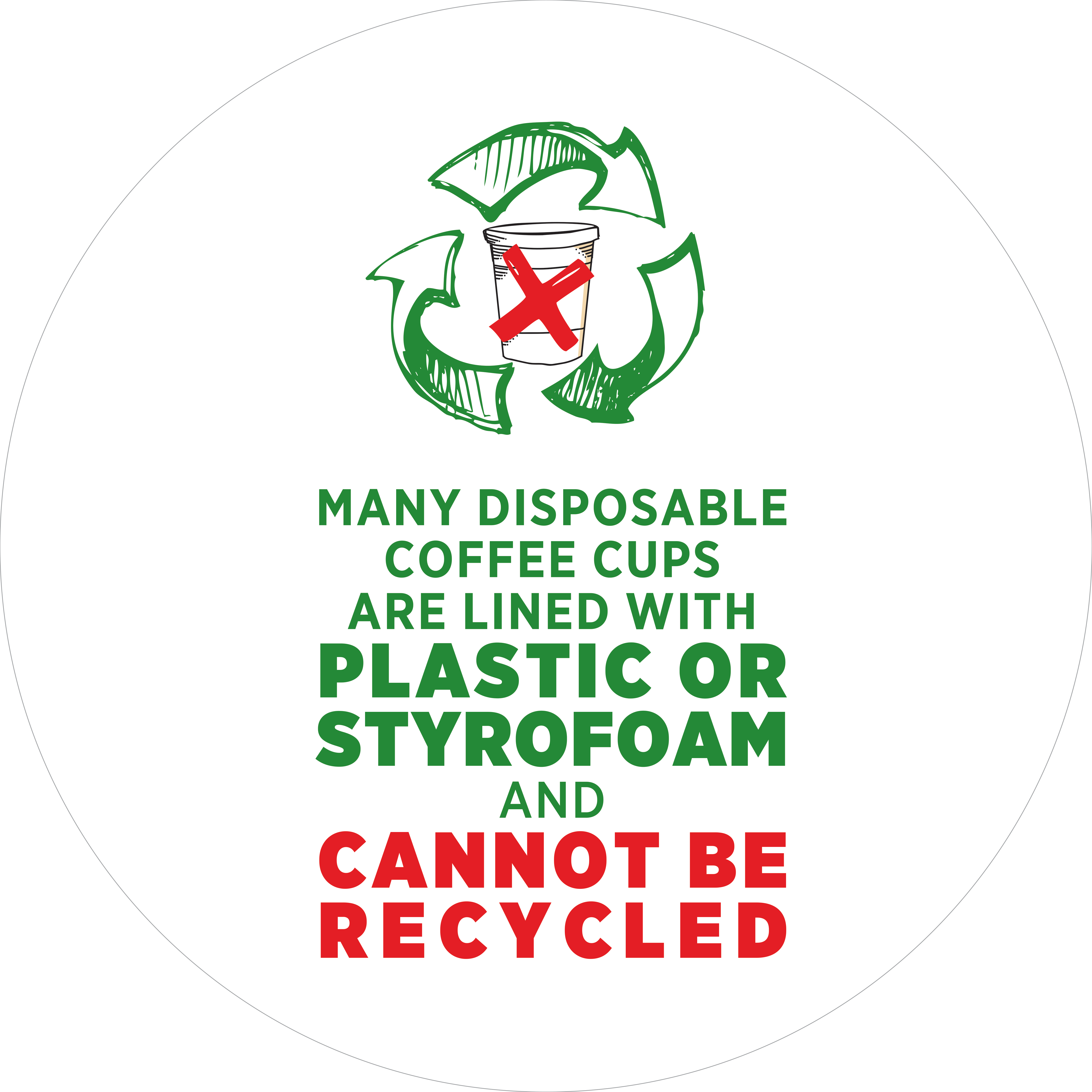by Accelerator Lab Turkey
Join the Change!
January 6, 2020
The coffee cup experiment of the Accelerator Lab ran for 2 weeks in December at a local coffee shop in Ankara. The aim was twofold: first, we wanted to challenge the widespread view that disposable coffee cups do not harm the environment as they are recyclable, and second, we wanted to see whether small changes in service offering would introduce new customer behaviours. The expected result was a reduction in the number of disposable cups used. The experiment involved 3 main actions: training baristas, educating customers, and offering financial incentives. Through our Head of Experimentation, we also received support from the Behavioural Insights team who ran a clinic in Tunis earlier this year.
Prior to the experiment we collected data by observing how baristas and customers approached disposable coffee cups; we also interviewed managers of the coffee chain to collect statistics. The numbers were rather shocking! Roughly every month 97% of all coffee is sold in disposable coffee cups!
There are various reasons behind this statistic:
1. Baristas do not have the habit of asking customers the key question of “For here or to go?” which, if asked, could well lead to a reduction in disposable cups if customers who prefer to have their drinks at the shop could use mugs instead. – Action 1
2. Consumers, regardless of the age, gender, income, or level of education, are not aware of the plastic content in disposable cups making them very difficult, if not impossible, to recycle in most cases Educating the public through effective communication is clearly key to breaking harmful habits.. – Action 2
3. It is well known that behavioural change is hard no matter how much training and education is provided. Suitable incentives can accelerate progress towards positive change by making it attractive to both suppliers and consumers. – Action 3
Although it is difficult to calculate what the effect of each action was, based on the qualitative evidence collected randomly from customers we were able to understand which ones worked better and if they worked well collectively.
Here are a few comments from participants:
“I was very touched with the poster showing a disposable cups tower. I really looked at what was going on inside the shop that I visit every day. Then I realized a small change in my behaviour could protect the environment.” Yigit, 33 (came to the coffee shop with his own tumbler)
“When I looked at the visuals, I realized what I was doing. I didn't think it would be this much. I now come twice a day with my own mug. I go all the way upstairs to my office to take my mug. We even started to sort out the garbage at home as well.” Bahadır, 35
“I think the incentives work really well. I believe the customers, especially within this building, will continue to bring their own mugs even after the experiment. I was impressed by a university student who brought 2 mugs, one for himself and one for his friend. They enjoyed the discount! Disposable cups are a complete waste, someone has to be a pioneer to change this.” Barista 1
“Before the experiment we were not asking customers if they wanted to have their coffee in a mug, we were offering the disposable cups by default. This has now changed; we will definitely continue to ask if they want to have it in a mug from now on.” Barista 2
“I believe some customers no longer use disposable cups because they feel ashamed to be seen with a plastic cup in their hands.” Barista 3
After the 2-week long experiment the data collected showed that there was a 19% reduction (from 97% to 78%) in the use of disposable cups. In other words, the use of mugs increased by 6 times!
During all this the team has been using our social media channels effectively. Via the UNDP account, we have conducted a small survey in which we asked people if they would like to support this kind of campaigns if we were to scale it up
Receiving dozens of positive replies was great – it gets to show how we can use this small-scale experiment to create a much larger movement.
All in all, this small-scale experiment has proven that the 3 simple actions of the AccLab have dramatically reduced the consumption of single use plastics in a coffee shop. It has also shown that there might a ripple effect: now that the participants are aware of the harm their actions may have caused, some have become more conscience of other aspects of waste in their lives.
Although the experiment was designed to be concluded by the end of December, the coffee shop has informed the AccLab team that they want to keep the posters and installations for another month. The financial incentive of 15% discount is expected to continue as well. This initiative has received much attention from social media, and we believe this exemplary campaign can be replicated by other businesses to show their commitment to environmental protection and a truly sustainable future. In coming days, UNDP Accelerator Lab team is planning an open call to invite other shops to join and be an actor in this growing movement. The results and feedbacks from the first experiment became the light on the methodology on how to better reach people and create a change in their behaviour to have a positive impact on environment.

 Locations
Locations





